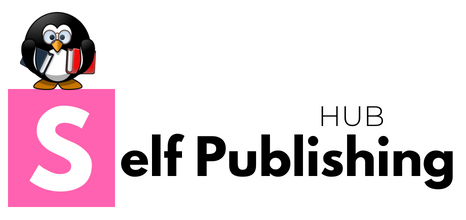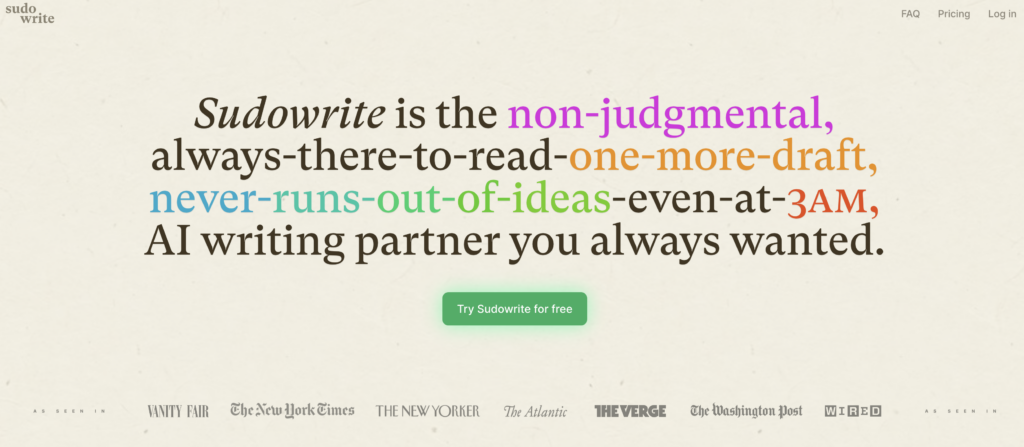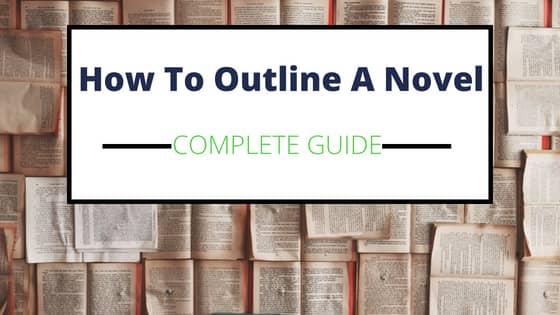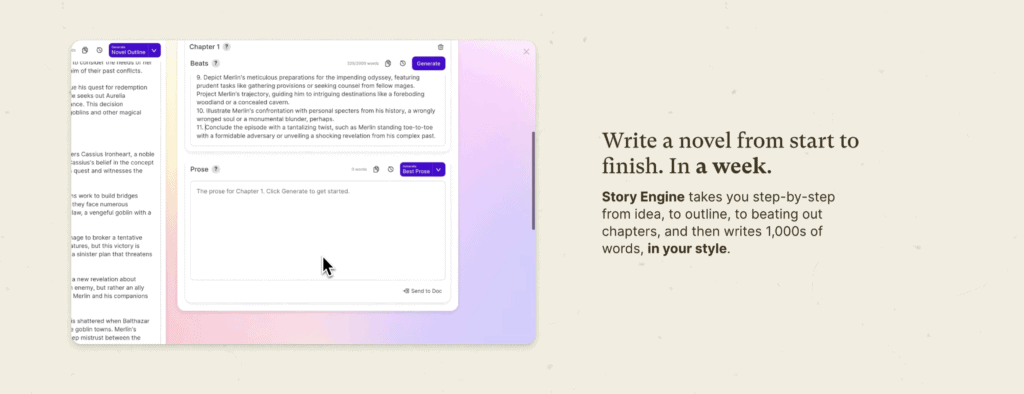Disclosure: The content on this site is free. Some of the links below are affiliate links from companies like Amazon.com and if you click the links and make a purchase we will receive a small commission at no additional cost to you. Thank you in advance if you decide to support our site by using our affiliate links!
There are many elements of fiction that an author has at his/her disposal when writing a story. If you want to get a much better understanding of them all, you should take a step back and read our ultimate elements of fiction guide here. But each element of fiction is so important it deserves its own in-depth guide, and so in this article, we will dissect and explain Theme.
Let’s start by answering the question: What is a theme of a story? The theme of a story can be thought of as the underlying message or central idea that an author is trying to deliver through the story. The theme of a story can be considered the overarching deeper meaning or message that the story delivers to the reader, usually universal in nature, transcending cultural barriers, making it applicable to the human condition as a whole.
Here is a video of a teacher teaching theme which may also help.
Now that you know the definition of a theme the remainder of this article will discuss much more about the importance of Theme in literature, including but not limited to:
- Why theme is important to the writer and reader
- How to develop the theme throughout your story
- How to find identify the theme to a story as a reader
- Examples of Common Themes
- How theme relates to other elements of fiction like plot, character, and setting
Many authors are hesitant to actively develop a theme ahead of writing their story for the fear that they will write a heavy-handed text didactic text for the reader. But the reality is you can craft a well thought out theme, and implement it in such a way that is neither heavy-handed or didactic.
That is what we will explore how to do with the remainder of this guide.
Article Topics
Why is Theme Important to your Story as an Author?
You may be wondering why a theme is important to your story. Some new writers will say they aren’t trying to deliver a message with their writing, they are simply trying to entertain the reader with their novel.
But having a theme is essential in doing just that, delivering a consistent and satisfying story that your readers will love.
Don’t think of theme as some didactic written form of the author preaching their worldview on to the masses. A theme is essential to your story for one very specific reason, it is the thread that holds your story together.
The theme is what will help keep you as the writer on point when you are writing your story. By having a central theme to your work, you will have a guiding light that connects all the elements in your fiction.
The theme is what will help you make good decisions when it comes to characters, plot, and setting. Having a central theme, or multiple themes that you are staying true to throughout the story will help you make more informed choices as a writer.
These choices are less likely to feel out of place or foreign to the rest of your story if you stay true to an overall theme of your book.
Having a theme is very important as an author because it helps provide the ultimate measuring stick for all parts of your writing. If you stay true to the message your theme is trying to deliver then the rest of the story elements should stay true to delivering an impactful story.
Here is a great little cartoon that discusses themes a bit further and provides a good lead into some of the theme concepts we will discuss moving forward.
How Does Theme Help the Reader?
In the previous section we talked about why the theme is so important to your story, but we answered the question from the writer’s point of view.
Since writing is about the reader, let’s discuss how having a theme helps the reader. The theme of your novel will give your story resonance for the reader.
Remember a theme is what your story is about, but not from a subject matter perspective. The theme of your novel should resonate with your reader at almost a cellular level. Ok maybe that is a bit of hyperbole, but remember your theme should be a universal truth that speaks to the human condition.
Since I presume most of your readers will, in fact, be human, giving them a theme or two that they can identify with, that they can relate with and touches them at their core, will make your story memorable long after the final page is read.
If you have a good story that is described as an entertaining read and nothing more, you will have a hard time sticking in your reader’s mind when they are done reading your book. But if you can tell that story around a central theme that your reader can identify with and really sink their teeth into, then you have a chance at turning a good story into a lasting great one.
What is the Difference Between Thematic Concept and Thematic Statement?
A couple of other terms that often get thrown into the discussion around Theme are Thematic Concept vs Thematic statements.
Both concepts work together as part of the overall theme, but there are subtle differences between the two.
The stories Thematic Concept can be thought of as a broader topic that the work touches on. Examples of broader thematic concepts are:
- Love
- Vengeance
- Forgiveness
Thematic Statements are a specific argument or position the author is trying to make on those broader thematic concepts. Examples of thematic statements are:
- Love conquers all
- Vengeance is a fool’s errand
- Forgiveness is the biggest gift you can give
As you can see there are infinite things that can be said about the broader thematic concepts, but the thematic statement is an example of a specific author slant or belief that he is making on the concept.
An easier way to think about this is that a million authors can write about the thematic concept of love, but each of them could have a very different and specific thematic statement to make on the concept.
Some genres lend themselves less to profound thematic statements. Sometimes a mystery lack can lack a deep thematic statement or commentary, however, even in this case, an author should at least try to connect their work with the loose thread of thematic concept.
Literary fiction, on the other hand, usually has a well-developed thematic concept and statement within the works.
Thematic concepts are sometimes described as one word, while thematic statements are usually limited to a sentence. However, to fully describe a theme you may need to use a couple of paragraphs to fully understand it and avoid oversimplifying it.
What are the Different Types of Theme Examples?
In this section, we will take a look at some common theme examples to give you a better idea of some of the most common types of themes used in the literature. We will organize the section into larger thematic concepts encompassing different types of thematic statements and the author could make on the theme.
Thematic Concept Example #1: LOVE

Examples of different Thematic Statements of Love:
- Love Conquers All
- All Love is Fleeting
- Love knows no bounds
- Love is blind
- Love sees no color
- There is no such thing as love at first sight
- Love is the ultimate motivator
- Unrequited love can kill
- No greater love than that between mother and child
- Forbidden love will find a way
Thematic Concept Example #2: DEATH
Examples of different thematic statements involving death:
- Death should not be feared
- Death in battle is the ultimate sacrifice
- Death over Slavery
- Freedom or Death
- Death in Faith is a new beginning
Thematic Concept Example #3: Good Vs Evil

Examples of thematic statements you could choose dealing with the theme of Good Vs Evil
- Good will always conquer Evil
- There is no such thing as Good and Evil
- People are inherently good
- People are inherently evil
- People are good or evil depending on the situation
- Good is boring
- Evil is more fun
- There is a very thin line between good and evil
Thematic Concept Example #4: Coming of Age
Examples of thematic statements you can make on this theme.
- Circumstance can force you to grow up too fast
- The innocence of children is something to be protected
- With adulthood comes new problems
- Learning to forgive is necessary for becoming an adult
- Adolescent Angst is a normal right of passage
- One must rebel to truly learn how to aqueous
- Growing up means making difficult decisions
- Being an adult means taking responsibility
Thematic Concept Example #5: Power and Corruption
Here are a few thematic statements involving power and corruption that your story may make.
- Absolute power corrupts absolutely
- Corruption breeds power
- Powers breeds corruption
- Power and Corruption are inseparable
- Ascending to power without corruption is impossible
- Great leaders cannot be corrupt
- Men will do anything to stay in power
- Morals over Power
- Power can be used for good or evil
- Corruption of the American dream
Theme Example # 6: Survival
Here are some thematic twists you put on Survival.
- Man will do anything to survive
- Survival instinct will always take over
- Survival of a loved one over oneself
- Survival at what cost?
- Survival in a diminished state
- Survival after death
- The worst of humanity is seen in times of survival
Theme Example #7: Prejudice
Here are some theme examples dealing with the thematic concept of prejudice.
- Prejudice is ignorance
- Prejudice exists in everyone
- Prejudice can never be stripped from someone
- Prejudice is humanity’s single greatest self-inflicted wound
- Courage in the face of prejudice
- Taking the high road in the face of prejudice
- Prejudice deniers
- Prejudice can overtake you
Thematic Concept# 8: Tradition
Here are some thematic statements you can use to explore the theme of tradition
- Tradition is worth honoring
- A danger in blindly the following tradition
- Tradition is the enemy of progress
- There are valuable lessons in tradition
- Tradition makes us who we are
- Culture survives through tradition
How to Find The Theme of a Story?
Let’s take a look at how you can find the theme of a story. Often times when we discuss what a story is about we are focused on the elements surrounding what happens in the story, or the plot.
If you want to learn more about the plot, then you need to take a look at our complete guide to Plot, which will help better define plot, plot elements, and structure for you.
A plot is usually much easier to discuss and point out because it is explicitly laid out in the events fo the text.
The challenge with a theme is that the theme is usually never specifically called out by the author. In fact, themes should be left up to the reader for interpretation. The reader needs to decide what the story or theme was about and this is where the real skill comes in as a writer.
As a reader, you need to look for the subtext in the story that will point you to its themes. If the author has done a good job constructing and incorporating themes into the novel, then you will be able to see a thematic thread that connects the characters, setting, and plot.
There are few literary devices that authors often use to express or hint at a theme. The three devices that authors often use to emphasize theme are Motif, Symbol, and Leitwortstil.
- Motif: is an element or idea that is used throughout the story. They are often collections of symbols that help accentuate the central theme.
- Symbol: In it’s broadest sense is anything that is used to represent something else. For example in literature, tangible objects can be used to represent something intangible.
- Leitwortstil: is when writers use a common phrase to highlight important concepts, this less common than the use of motif.
If you keep a keen eye out for these literary devices when reading, along with the central concepts that are pervasive through the books characters, setting, and plot, you should be able to pick out themes of the work quite well.
In the next section, we will look how you as an author can develop themes further.
How can an Author Develop a Theme?
Once an author knows their theme, then they can use the remaining elements of fiction to tell their story using each of them as stewards of the theme itself.
An author’s decisions in terms of plot, character, and setting all help to drive home the commentary or message they are trying to make on a topic. That message is the theme.
The first thing an author must do to develop a theme is to make the conscious decision to do so. The theme or themes need to be intentional from the start. This is key to making sure you can pull it through the entire novel.
Once you know your theme, you can easily view each character, plot, and setting through the prism of that theme. You can then make specific choices that complement your themes. If you don’t take the time to conceptualize your theme, it will be impossible to use each of the elements of fiction to bring it out.
You will either find yourself trying to retrofit your theme into the story, or missing opportunities to develop the theme further throughout the story.
How an Author can use Motif to Develop Theme
As an author, you can use Motif, which is recurring structure, literary devices, or symbols throughout your story to help develop your theme.
A classic example of using Motif to develop Theme can be seen in The Great Gatsby. In the story, there are some recurring Motifs that show up throughout the story.
- Geography: is used to represent distance and difference. The east coast represents decadence and cynicism, whereas the west coast represents a more traditional wholesome America.
- Weather: is used throughout the novel to represent ever-changing moods and tones of the characters.
You as a writer can develop your theme using motifs that represent your theme, doing this well is difficult to do but well worth it when it is done well.
How Authors can develop Theme Using Symbolism
The second literary device you can use to develop your theme is symbols. Symbols are characters, objects, or figures that represent something beyond what is on the surface.
In The Great Gatsby, the symbol of the green light makes various appearances throughout the novel. It represents the distance between him and Daisy, which represent the American dream he can’t achieve. It also doubles as a symbol for the color green which represents money and greed.
When you are writing your story, knowing your theme allows you to strategically pick symbols that you can embed throughout your novel as a way to develop your theme further. Individually these symbols may not be enough to have a reader figure out your theme, but used together with Motifs and choices in character, plot, and setting they can be a great way to reiterate and develop your thematic statement.
How to use Leitwortstil to Develop your theme further.
Leitwortstil is used less commonly than the other two literary devices we have covered to develop a theme, however, you can use it.
By strategically using a repeated statement or phrase throughout your text, you can help establish and develop your theme, but you want to be careful not to make this too overt or on the nose.
How does Characterization affect Theme?
As an author characterization in incredibly important to writing a successful novel. If you want to learn more about the importance of developing character and characterization read these two articles to help master both.
When you are developing your characters you want to make sure you consider your theme as the overarching message you are trying to deliver.
How your characters react to situations in your plot should directly represent the themes in your story. There are countless ways a character can react to the same situation. Based on the thematic statement you are trying to make your characters should react in a way that is congruent to that message.
Also, your characters thoughts and dialogue give voice to the author’s theme. You don’t want to clobber your reader over the head with your theme, but you definitely want to craft your characters in a way that helps you make the commentary you’re trying to make.
Ultimately your theme is linked to your character’s progression or the lesson they have learned or failed to learn. There should be a link between what the character learned and what thematic statement you are trying to make.
How Does Theme affect the Plot?
Since your theme should be related to your character’s progression, the plot is essential to making that happen. If you want to learn all about plot definition, structure and elements read this.
Your character will progress throughout the story based on the events that occur during the story. Your character will react, makes choices, and act proactively throughout the story to move the story forward.
How they act during these plot events will dictate their progression or lack thereof throughout the story. This, as we discussed, is closely related to the theme of your novel. So you want to make sure you are picking plot elements that stay true to your theme.
The plot drives the story forward, which drives your character forward, which then drives your character’s progression, which ties closely to the thematic statement you are trying to make.
How does Setting affect Theme?
When developing your setting, there are many consequences to the decisions we make as an author. One of the things that can be most affected by setting is the theme.
The setting will help establish the environment and societal norms of your story. This will help ground the character and influence the events that take place in your plot.
When you consider how intertwined character and plot is to theme, and couple that with the fact that your characters and plot are greatly dictated by your stories setting, it is easy to see why setting and theme are so closely related.
As an author, careful selections in your setting will not only help set up a great story, it will also help accentuate your theme in subtle ways.
When it comes to theme, what is unsaid is way more important than what is actually said. So make sure you make conscious decisions when it comes to your setting that not only set up your plot but also highlight your theme where appropriate.
Famous Theme Examples in Literature
Let’s take a look at a couple of other famous theme examples in literature that can help you complete your understanding of Theme.
- Lord of The Rings: Power and Corruption– Throughout the book J.R.R. Tolkien uses the Ring to bring out the concept that power corrupts. The fact that the one ring must be destroyed but it was hard to do, and that the ring constantly tempts the characters in the book. He also emphasizes the theme by the hero’s quest to destroy the ring, it is a dangerous journey and symbolizes the strength needed to fight temptation and corruption.
- Crime and Punishment: Fleeting Morality– Author Dostoevsky, plays with the theme that morality is circumstantial by showing a man justify murder based on doing society a favor, but then when he is surprised by the pawnbroker’s sister, he kills her as well. Later in the novel, he gives the money he stole from the pawnbroker to the widow of trampled homeless man. Showing that it is good and bad in the same person. Commenting that there is no black and white when it comes to good and evil, merely good or evil at the moment.
- 1984: Power and Manipulation– George Orwell offers commentary on dangers of power and manipulation, something he witnessed firsthand during the war propaganda of the 1930’s and 1940’s. In the book, the party even goes out of its way to convince the people that 2+2=5, to show the power they hold. This speaks to the dangers of a ruling power using manipulation to push untruths as truth itself.
Conclusion: What is a Theme in a Story
I hope this guide has given you a good understanding of exactly what is a theme in a story. You should now be able to identify the themes in different works, as well as understand why they are so important to stories.
We showed you how to develop a theme as an author using various literary devices like motif and symbolism, as well as showing how your theme should relate to plot, character, and setting.
Practice mapping out your theme when you are outlining your novel. This will help ensure that you keep your theme active and at the forefront of your novel.
Remember not to be too overt in the delivery of your theme, it should be subtle and unsaid.
As always, Thank you for reading and more importantly Writing!










